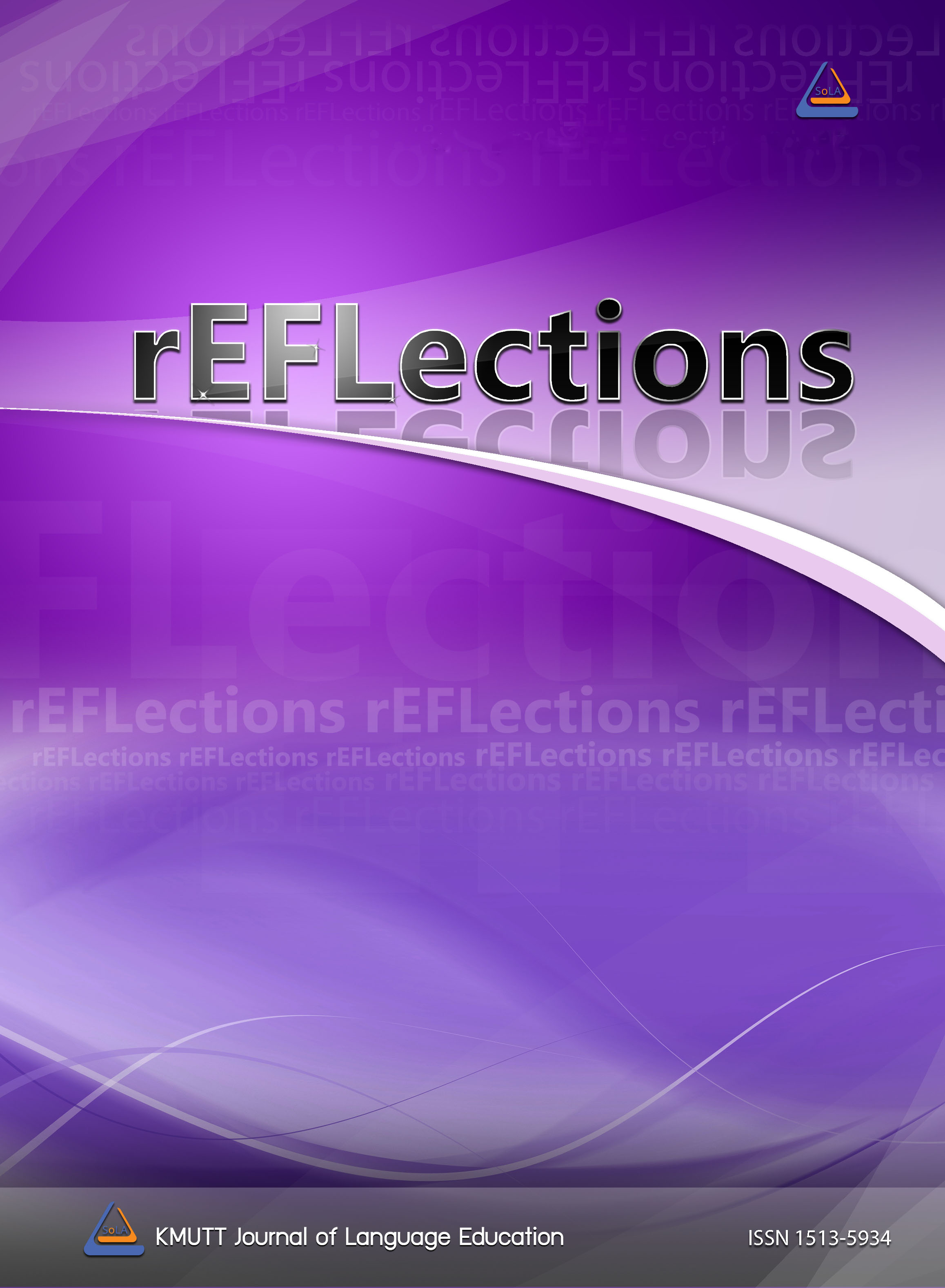The Factors Affecting Chinese College English Teachers’ Learning Development: A Narrative Study
Main Article Content
Abstract
By ethnographic research, this study intends to explore the ways and influencing factors of college English teachers’ learning through eight cases by means of qualitative multi-case study so as to identify how they achieve professional development. The results show that lack of time management, heavy administration work, over ambition and passiveness are the negative factors which affect teacher learning. Teacher learning happens with clear goal and motivation, while passive learning may lead to good results in terms of the teacher community. This study claims that teacher success will definitely be affected by teachers’ clear goal and motivation with confidence, the influence of teaching community and the family influence.
Article Details

This work is licensed under a Creative Commons Attribution-NonCommercial-NoDerivatives 4.0 International License.
References
Appova, A., & Arbaugh, F. (2018). Teachers’ motivation to learn: implications for supporting professional growth. Professional Development in Education, 44(1), 5-21.
Bakkenes, I., Vermunt, J. D., & Wubbels, T. (2010) Teacher learning in the context of educational innovation: Learning activities and learning outcomes of experienced teachers. Learning and Instruction, 20(6), 533-548.
Beckett, D., & Hager, P. (2001). Life, work and learning: Practice in postmodernity (1st ed.). Routledge. https://doi.org/10.4324/9780203994450
Burden, P. R. (1979). Teachers’ perception of the characteristics and influences on their personal and professional development [Doctoral dissertation, The Ohio S tate University, 1979, pp. 320-334].
Cai, J. (2018). Re-understanding the belief and idea of ESP — Retrospect and reflection on foreign language education in Chinese universities during the 40th anniversary of reform and opening-up. Foreign language studies, 35(2), 42-47.
Campion, J. C. (2016). ‘The learning never ends’: Exploring teachers’ views on the transition from General English to EAP. Journal of English for Academic Purposes, 23, 59-70.
Crossman, A. (2019). What Is ethnography? What it is and how to do it. ThoughtCom. https://www.thoughtco.com/ethnography-definition-3026313
Dewey, J. (1933). The later works, 1925-1953. Southern Illinois University Press.
Ezzy, D. (2002). Qualitative analysis: Practice and innovation. Routledge. http://ecite.utas.edu.au/35298
Farrell, T. S. C. (2008). Reflective language teaching: From research to practice. Continuum.
Freeman, L. D. (1998). Doing teacher research: From inquiry to understanding. Heinle & Heinle Pub.
Gebhard, J. G. (1990). Interaction in a teaching practicum. In J. C. Richards & D. Nunan (Eds.). Second language teacher education. Cambridge University Press.
Goetz, J. P., & LeCompte, M. D. (1984). Ethnography and qualitative design in educational research. Academic Press.
Halvorson, H. G. (2012). Succeed: How we can reach our goals. Plume (2nd ed.).
Huang, P. (1999). Solving the problems of subject specialist knowledge faced in the ATTSR project. Teaching English in China, 33, 55-61.
Huberman, A. M., & Miles, M. B. (1994). Data management and analysis methods. In N. K. Denzin & Y. S. Lincoln (Eds.), Handbook of qualitative research (pp. 428-444). SAGE Publication.
Johnson, K. E. (2009). Second language teacher education: A sociocultural perspective. Routledge.
Knezevic, A., & Scholl, M. (1996) Learning to teach together: Teaching to learn together. In D. Freeman & J. C. Richards (Eds.), Teacher learning in language teaching. Cambridge University Press.
Lave, J., & Wenger, E. (1991). Situated learning legitimate peripheral participation. Cambridge University Press. https://doi.org/10.1017/CBO9780511815355
Luo, X. (2016). The cultivation of excellent teachers from the perspective of Bergson’s philosophy of life. Research in Educational Development, 36(12), 65-72.
Meirink, J. A., Meijer, P. C., Verloop, N., & Bergen, T. C. M. (2009). Understanding teacher learning in secondary education: The relations of teacher activities to changed beliefs about teaching and learning. Teaching and Teacher Education, 25, 89-100.
Merriam, S. B. (1998). Qualitative research and case study application in education (2nd ed). Jossey-Bass.
Minichiello, V., Aroni, R., Timewell, E., & Alexander, L. (1995). Indepth interviewing principles, techniques, analysis. Longman.
National Education Examinations Authority. (2018). China’s standards of English language ability. Ministry of Education, People’s Republic of China.
Nunan, D. (1990). Action research in the language classroom. In J. C. Richards & D. Nunan (Eds.), Second language teacher education. Cambridge University Press.
O’Connell, D., & Kowal, S. (1995). Basic principles of transcription, In J. R. Smith, L. Harre & V. Langenhove (Eds.), Rethinking methods in psychology. Thousand Oaks: SAGE.
Reichenberg, M., & Andreassen, R. (2018). Comparing Swedish and Norwegian teachers’ professional development: How human capital and social capital factor into teachers’ reading habits. Reading Psychology, 39(5), 442–467.
Richards, J. C., & Lockhard, C. (1994). Reflective teaching in second language classrooms. Cambridge University Press.
Richards, J. C., & Farrell, T. (2005). Professional development for language teachers. New York: Cambridge University Press.
Richards, L. (2005). Handling qualitative data: A practical guide. London: SAGE.
Schön, D. (1983). The reflective practitioner: How professionals think in action. New York: Basic Books.
Tsui, A. (2007). What shapes teachers’ professional development? Springer International Handbooks of Education, 15, 1053-1066.
Vescio, V., Ross, D., & Adams, A. (2008). A review of research on the impact of professional learning communities on teaching practice and student learning. Teaching & Teacher Education, 24(1), 89-91.
Vygotsky, L. S. (1978). Mind in society: The development of higher psychological processes. Harvard University Press.
Wallace, M. J. (1998). Action research for language teachers. Cambridge University Press.
Wenger, E. (1998). Communities of practice. Cambridge University Press.
Williams, M., & Burden, R. L. (1997). Psychology for language teachers: A social constructivist approach. Cambridge University Press
Woods, D. (1996). Teacher cognition in language teaching: Beliefs, decision-making and classroom practice. Cambridge University Press.
Ye, L. (2001). Thinking walks through the fracture: Re-seeking the relationship between educational theory and educational practice. Journal of the Chinese Society of Education, 4, 1-6.


